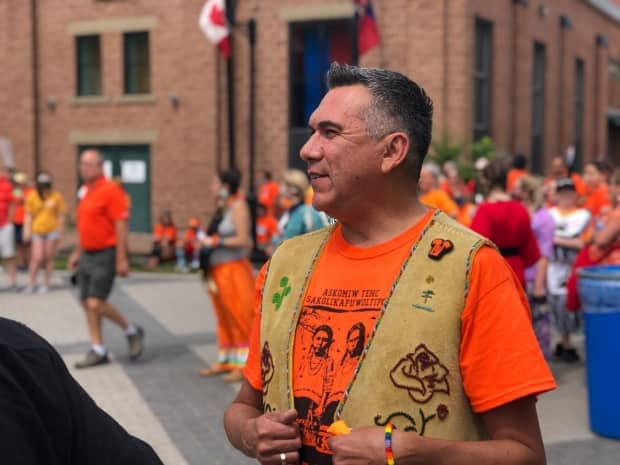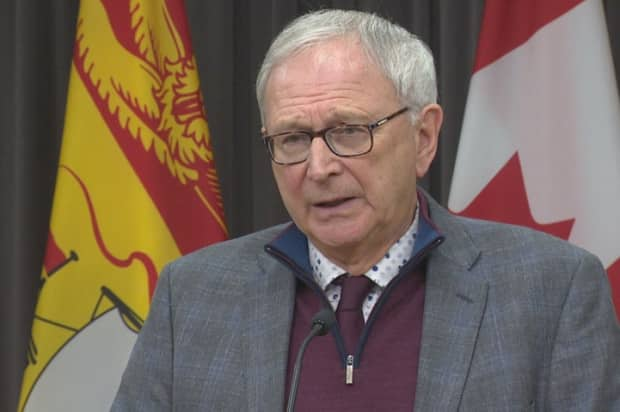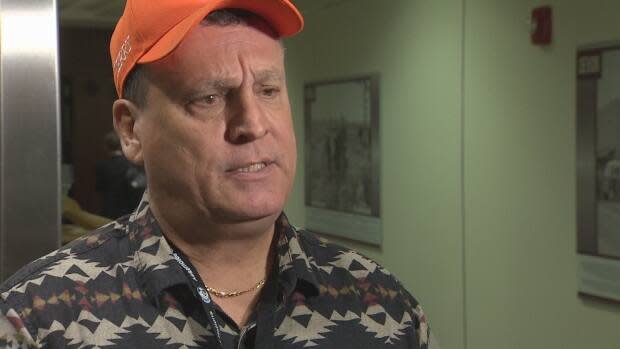N.B. budget forecasts $43.6M less in revenues for First Nations

A $43.6 million savings for the New Brunswick government is being decried by First Nations leaders as a loss for their communities.
Finance Minister Ernie Steeves tabled the government's new budget on Tuesday, showing the province expects to spend $33.4 million sharing retail tax revenue with First Nations for goods purchased on-reserve, such as gasoline and tobacco.
That's compared to the fiscal year just ending, which saw the province spend $77 million on the same thing.
The figure released on Tuesday comes after Premier Blaine Higgs scrapped agreements the province had with First Nations communities in New Brunswick and offers a first look at the impact that could have over a full year.
Wolastoqey communities saw their tax revenue-sharing agreements come to an end as of February, while Mi'kmaw communities will see theirs end Jan. 1, 2024.

"Yesterday we saw the Higgs government boast about spending $1.7 million for what it called "culturally appropriate" addiction and mental health services for our community members, while slashing nearly $44 million that our communities used to deliver services just like that on our own," said Allan Polchies, chief of Sitansisk First Nation, also known as St. Mary's, a Wolastoqey community in Fredericton.
"This is a clear example of the paternalistic, austerity-obsessed way the premier and his government operate with respect to Indigenous people," Polchies said.
CBC News asked for an interview with Steeves about the expected savings, but neither he nor Aboriginal Affairs Minister Arlene Dunn were available for an interview.
First Nations bands charge the same provincial taxes as other businesses, which are collected by the federal government. Ottawa then transfers the provincial share to the province, as it does with all retail tax revenue.
Under the agreements, the province then remitted 95 per cent of the on-reserve retail revenue to the First Nation, up to $8 million. The province remitted 70 per cent of amounts beyond that.
The agreements had been in place since the 1990s, and Wolastoqey and Mi'kmaw leaders argue they allowed their communities the chance to develop and create economic opportunities for residents.

At the time he announced the agreements were being scrapped, however, Higgs said the amounts being remitted had grown too large, thus giving First Nations retailers an unfair advantage.
He also proposed replacing them with five-year funding deals that would see the province help pay for health, housing, social assistance and education on reserves, as long as the bands agree to firm timelines and measurable targets.
No alternative in place yet
Pabineau First Nation is a Mi'kmaw community in northeastern New Brunswick, and Chief Terry Richardson said the community has used its tax revenue remittance to fund community programs.
With that set to end next year, he said his band has been unable to meet with Higgs to negotiate a new deal and is now exploring options to make up for that revenue on its own.

"There's a cost associated with that [loss of the agreement] with our communities," said Richardson, adding it resulted in close to $1 million in recent years.
"Who's gonna pick up that that difference?" he said.
Polchies said the agreement between his community and the province brought between $8 million and $10 million annually in revenue.
While the loss of that revenue has impacted band-operated programs, he said his community is also exploring options, including the possibility of implementing its own retail tax.
"We of course will be looking at those options. We're looking at everything that we can to ensure that we have revenue coming in," he said.


